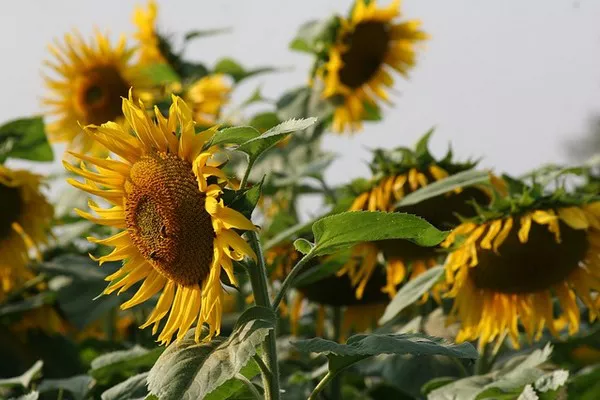Gardening enthusiasts often find joy and fulfillment in cultivating beautiful flowering plants, but for dog owners, the safety of their furry companions is a top priority. With many common garden plants being potentially toxic to dogs, it’s essential to select flora that not only adds beauty to your outdoor space but also ensures the well-being of your canine friends. In this comprehensive guide, we’ll explore a diverse array of non-toxic flowering plants that will thrive in your garden while keeping your beloved pets safe.
Understanding Plant Toxicity:
Before delving into the world of non-toxic flowering plants, it’s crucial to grasp the concept of plant toxicity and its implications for dogs. Many plants contain compounds that, when ingested by dogs, can lead to a range of adverse effects, from mild gastrointestinal upset to severe poisoning and even death. Symptoms of plant poisoning in dogs may include vomiting, diarrhea, drooling, lethargy, difficulty breathing, and in severe cases, seizures or organ failure.
Common Toxic Plants:
Numerous commonly cultivated garden plants pose a risk to dogs if ingested. Among the most notorious offenders are lilies, azaleas, daffodils, tulips, oleander, sago palm, and certain varieties of ivy. These plants contain toxins that can cause a range of symptoms, from mild gastrointestinal discomfort to potentially fatal consequences. For dog owners, avoiding these toxic plants is essential to safeguard their pets’ health and well-being.
Selecting Non-Toxic Flowering Plants:
Fortunately, there are plenty of flowering plants that add color and vibrancy to your garden without posing a threat to your canine companions. When choosing non-toxic plants for your garden, consider factors such as climate suitability, soil conditions, and sun exposure to ensure optimal growth. Here are some popular options:
Roses (Rosa spp.): Roses are a classic choice for gardeners, prized for their beauty and fragrance. Fortunately, these iconic flowers are non-toxic to dogs, allowing you to enjoy their blooms without worrying about your furry friends.
Marigolds (Tagetes spp.): Marigolds are beloved for their cheerful orange and yellow blooms, which add a splash of color to any garden. These hardy annuals are safe for dogs and can thrive in a variety of soil types and conditions.
Sunflowers (Helianthus spp.): Sunflowers are renowned for their towering stems and bright, cheerful flowers. These summer-blooming plants are non-toxic to dogs, making them an excellent choice for dog-friendly gardens.
Petunias (Petunia spp.): Petunias are versatile flowering plants that come in a variety of colors, including pink, purple, and white. These annuals are safe for dogs and can be grown in containers, hanging baskets, or flower beds.
Zinnias (Zinnia spp.): Zinnias are easy-to-grow annuals known for their vibrant, daisy-like flowers. These colorful blooms are non-toxic to dogs, making them a popular choice for gardeners seeking pet-friendly plants.
SEE ALSO: Are Flowering Cherry Trees Poisonous to Dogs? All You Need to Know
Creating a Safe Garden Environment:
In addition to selecting non-toxic flowering plants, there are several other steps you can take to create a safe garden environment for your dogs:
Fence Off Hazardous Areas: If you have plants in your garden that are toxic to dogs, consider fencing off these areas to prevent access. This can help minimize the risk of accidental ingestion.
Provide Plenty of Fresh Water: Ensure that your dogs have access to fresh water at all times, especially when they are spending time outdoors. This can help dilute any toxins they may have ingested and prevent dehydration.
Supervise Outdoor Time: Whenever your dogs are in the garden, supervise them closely to prevent them from nibbling on potentially harmful plants. Training your dogs to avoid certain areas of the garden can also be helpful.
Consult a Veterinarian: If you suspect that your dog has ingested a toxic plant, seek veterinary care immediately. Prompt treatment can help mitigate the effects of poisoning and improve your dog’s chances of recovery.
Conclusion:
In conclusion, creating a dog-friendly garden involves careful selection of non-toxic flowering plants that will enhance your outdoor space without compromising your pets’ safety. By choosing plants such as roses, marigolds, sunflowers, petunias, and zinnias, you can enjoy a beautiful garden while providing a safe environment for your canine companions to explore and play. Additionally, implementing measures such as fencing off hazardous areas, providing fresh water, and supervising outdoor time can further ensure your dogs’ well-being. With these tips in mind, you can create a garden that delights both you and your furry friends for years to come.


